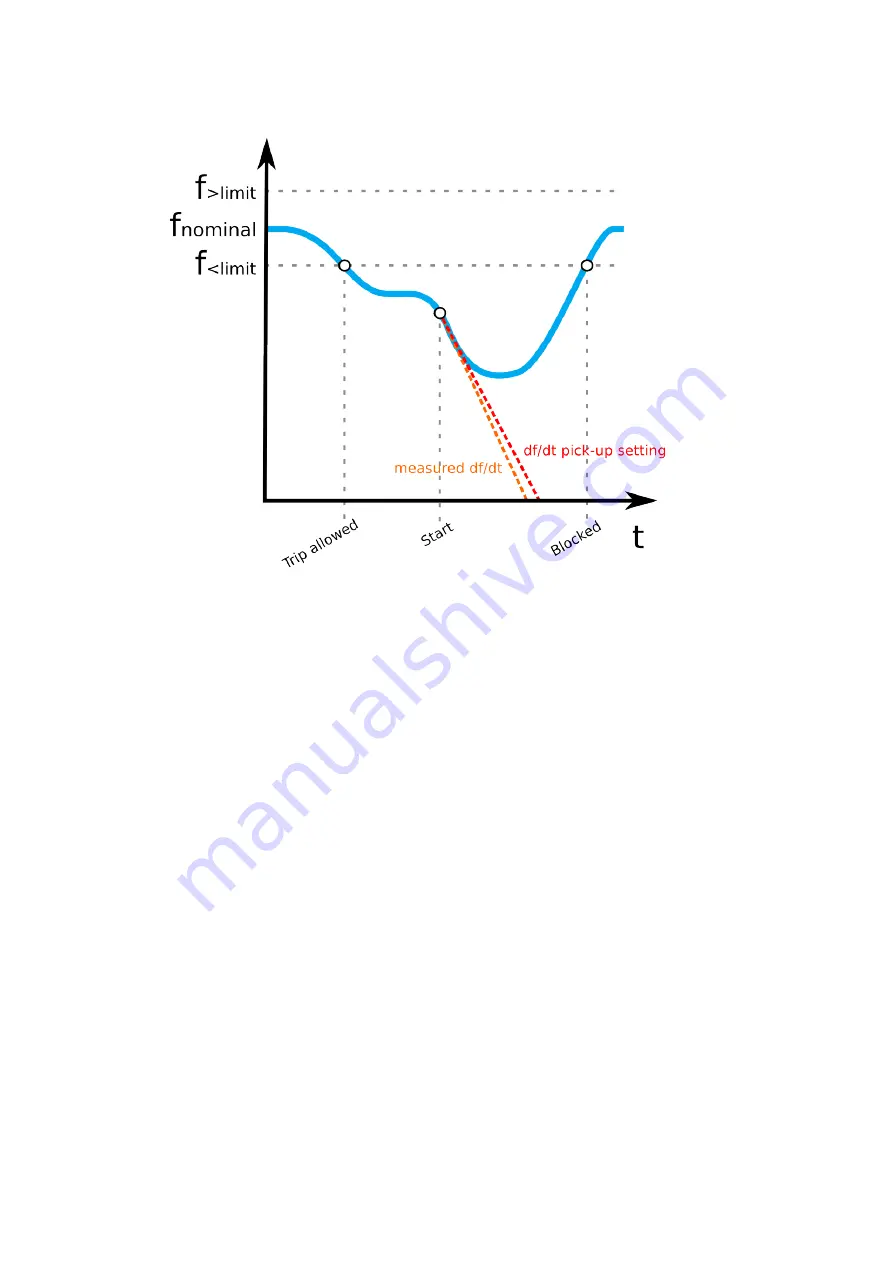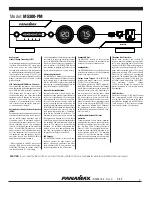
Figure. 5.3.16 - 148. Operation of the df/dt>/< function when the frequency starts but doesn’t trip.
The figure above presents an example of the df/dt>/< function's operation when the frequency is
decreasing. If the f<
limit
and/or f>
limit
is activated, the function does not trip no matter how fast the
measured frequency changes if it’s over the f<
limit
or under f>
limit
. As can be seen in the figure above,
when the frequency decreases under the f<
limit
,tripping is allowed although the change of frequency is
not yet fast enough for the function to trip. Later the frequency makes a fast dip and as a result the
change of frequency is faster than the set pick-up value which then causes the relay to operate.
Each stage can be activated and deactivated individually. After the f>/< mode has been activated
(
Protection
→
Stage activation
→
Frequency stages), the user can activate and deactivate the
individual stages at will (
Protection
→
Frequency
→
Frequency protection f >/<
→
INFO
→
Stage
operational setup).
The outputs of the function are the START, TRIP and BLOCKED signals. The frequency protection
function uses a total of eight (8) separate setting groups which can be selected from one common
source.
The function can operate on instant or time-delayed mode.
The operational logic consists of the following:
• input magnitude processing
• threshold comparator
• two block signal check
• time delay characteristics
• output processing.
The inputs for the function are the following:
• operating mode selections
• setting parameters
• digital inputs and logic signals
A
AQ
Q-F215
-F215
Instruction manual
Version: 2.04
213
















































